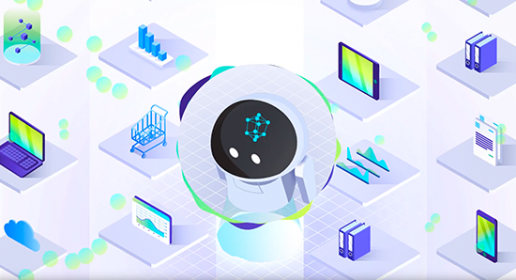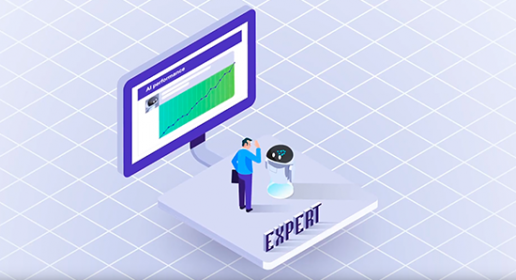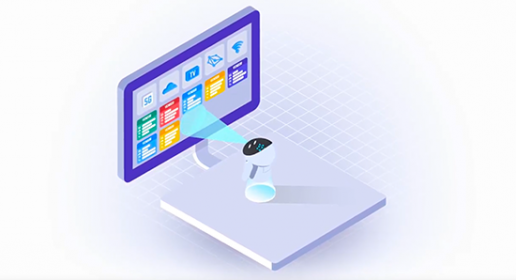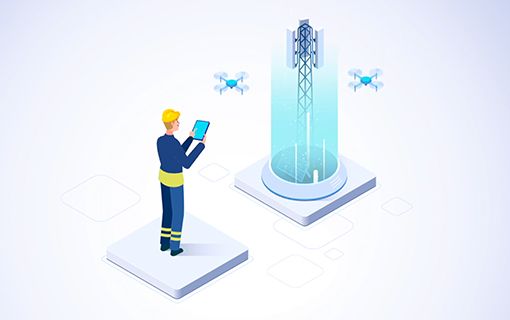AI Is Not a Dream of the Future, but a Must-have in the Upcoming Digital Reality of 5G Telecom Services
- Published
- 5 min reading

The times when the use of artificial intelligence in network operations was proof of thrift are passing. We are entering a new era, where the intensification of activities in the provisioning and maintenance of telecommunications services will force companies to utilize more AI-driven modern tools to support operations and fulfill customers’ needs.
5G in telecoms will change everything – but are we all sure that we are talking about the same 5G?
The tale of how 5G will change everything is on repeat. But will it really? Well – yes. But not the 5G most people think of. It will be 5G services, not the 5G network itself, that change our lives.
We believe that the “miracle of SMS” will repeat itself. SMS was designed as a niche -not a very attractive service to the end customer. At least, that’s what was thought. In reality, the service has conquered the world. Its career did not last long, as it was replaced by more innovative, universal methods of communication, but the phenomenon of popularity that was exceeding the wildest predictions of its creators remained.
The constructors of 5G networks promise us some possibilities, but a lot depends on how the networks are developed by the service providers. This also relies on one simple thing – customer pressure to receive the services that they dream about.
What we can do today vs. what we achieve tomorrow
Today we already have many successful implementations of 5G networks. But did things really change that much? Unfortunately – no. In order to make a change, operators have to, well, make a change – specifically in their network architecture. Right now, most mobile network access elements that are implemented allow the use of services as they have been so far, only with greater efficiency possibilities. None of the CSPs have yet developed such changes that would allow the rollout of new 5G telecommunications services.
Therefore, the time of artificial intelligence in the provision and maintenance of telecommunications services is yet to come. Only when the entire network fulfills the promises of the constructors, on the basis of which service providers will construct services, will there be a significant change. We will be dealing with another revolution in mobile communications, such as the transition from analog to digital systems. Based on these experiences, it is virtually impossible to predict the magnitude of these changes. But it is sure that it will be a real break from today’s norm.
Service activation, provisioning and assurance will take on meaning
In this context, one can refer to the revolution that took place in terms of providing and maintaining the quality of services in recent years. From the tiny, closed systems provided by hardware manufacturers, eagerly guarding the monopoly on the management of their own equipment, a digital world of open interfaces and digital management has emerged, and the race to provide ever higher quality has started.
The principle that a service management tool must be at least as technologically advanced as the service itself (or rather, as the infrastructure that provides it) will still be relevant and probably even more important in the race to attract customers. Why? There will be no time to "get the system up and running". Unlike in the past, customers will strike in great numbers all at once. They will be hungry for new products, and there is no point in dreaming that prices can try to suppress these appetites.
It is time for AI-driven network provisioning and maintenance
Changes in the provision and maintenance of telecommunications services are quickly approaching. The highly competitive market will force the search for relatively cheap systems ensuring changes in services in a very short time. Suppliers and system users must be prepared for these updates. There are many actions that will be necessary, and which can be taken today. There’s no more time to waste.
On the market of artificial intelligence solutions and techniques, there will be equally intense competition for customers, who will in this case be telecommunications service providers. Several different solutions are already available, employing a very wide range of approaches to the subject, but because there’s a lack of real services based on the promises of 5G technology developers, it is still only a theoretical attempt to compare their advantages and disadvantages. However, when these services appear, there will be a very little time for detailed analysis and decisions.
Therefore, while today's decisions carry some risk, failing to take them will guarantee that system shortfalls will hamper the delivery and maintenance of services, damaging sales prospects in the most lucrative period. As always, there will be big winners and losers.
What’s the recommendation? Give yourself time by starting this evolution process today. On the upcoming wave of changes, you will need to look for the best position. Preferably, somewhere in the forefront.












